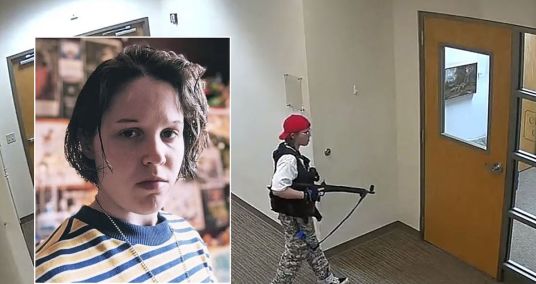
Posted on 05/14/2024 2:43:26 PM PDT by CharlesOConnell
Transexuals think we're after them, so they are developing the intention to come after us first.
There is a long history of Jussie Smollett type, self-poised persecution-perception among trans-sexual and homosexual activists, devolving down ultimately to the fact that they are unable to force approval for their lifestyle, beyond maintaining the "we're born this way" argument.

A year ago, the straw man was Audrey Elizabeth Hale, the Nashville Christian School shooter. There is some disagreement about the reasons for keeping their manifesto confidential: The school, the victims' families and the trans community feel it is an issue of damping down prejudice, disregarding ordinary people's need for safety. The issue is the same media mania from 35 years ago during the controversy over Ryan White, a non-gay boy who had HIV/AIDS and needed to be elaborately sympathized with over claims of prejudice against him.

At about the same time, Matthew Shepard was found dying on a barbed-wire fence, but the community has resolutely refused to acknowledge that he was sexually involved with his assailant, keeping his hagiography alive to garner sympathy.
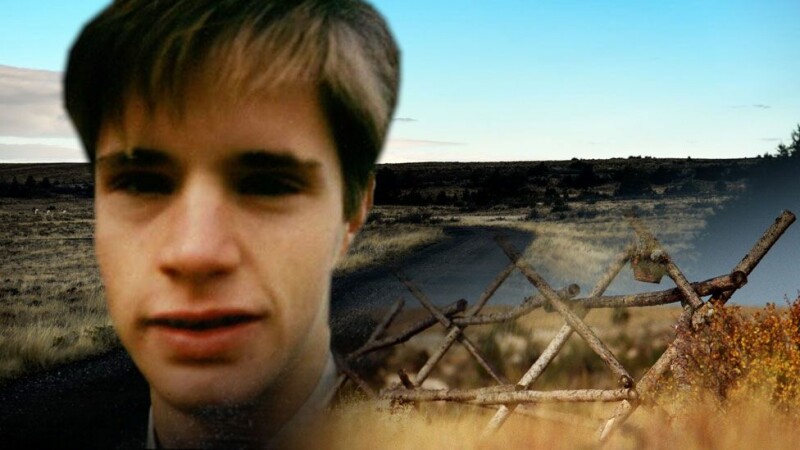
The newest martyr is a suicide victim, Nex Benedict, died February 8, 2024. A video at https://twitter.com/i/status/1775038153860235302 proves that Nex initiated a school-bathroom altercation that unfortunately resulted in harmful contact of their head or face with a washroom sink. The day after the Sheriff deputy can be seen on bodycam, evoking Nex's acknowledgment to having started the altercation, Nex committed suicide.
The trans community has again reacted by citing the circumstances, not merely as evidence of prejudice against them, but of homicidal intention.
I listened to these arguments by my own grandchildren without interruption, at the culmination of which there were death threats made. I am engaged with mid-teen grandchildren who are dedicated to transexual ideology. (When my now 16-year-old granddaughter was moving from 8th to 9th grades, I asked them, in terms of their chosen term, "transitioning", how many, or what proportion of the class is doing it? "Oh, all of them". I believe it. The schools have become sexual-Stalinist recruiting stations for transsexualism, to an extent that few outsiders can appreciate.)
My granddaughter, a physically well-developed xx-chromosomal person, expressed a desire not to have to undergo surgery. To support them in this resolution, I got them a chest binder, a move that most people lacking first-person acquaintance with the situation might criticize.

I got a break from the rancor of this topic, by receiving an inquiry from my granddaughter about vaccines. Our family has avoided them. I started studying "1984" because Dr. Michael Nell's "Indoctrinated Brain" makes frequent reference to "1984" and to "Brave New World".
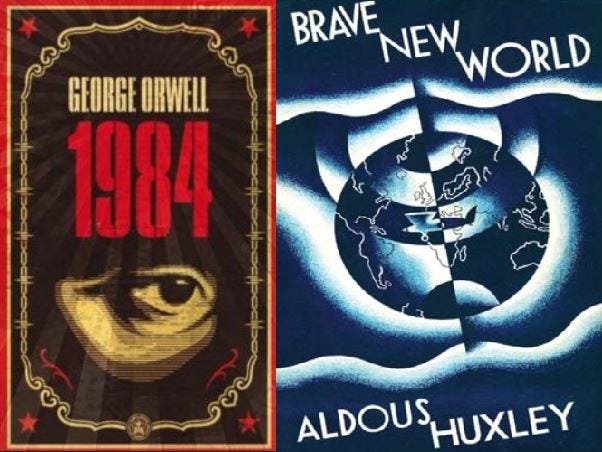
(I am giving my granddaughter these books, and another book, Greenpeace founding scientist, Dr. Patrick Moore's "Fake Invisible Catastrophes and Threats of Doom", to give tangible examples for Dr. Nells' finding that the organized management of fear during the Covid crisis actually caused physically measurable harm to brain structure and function.)
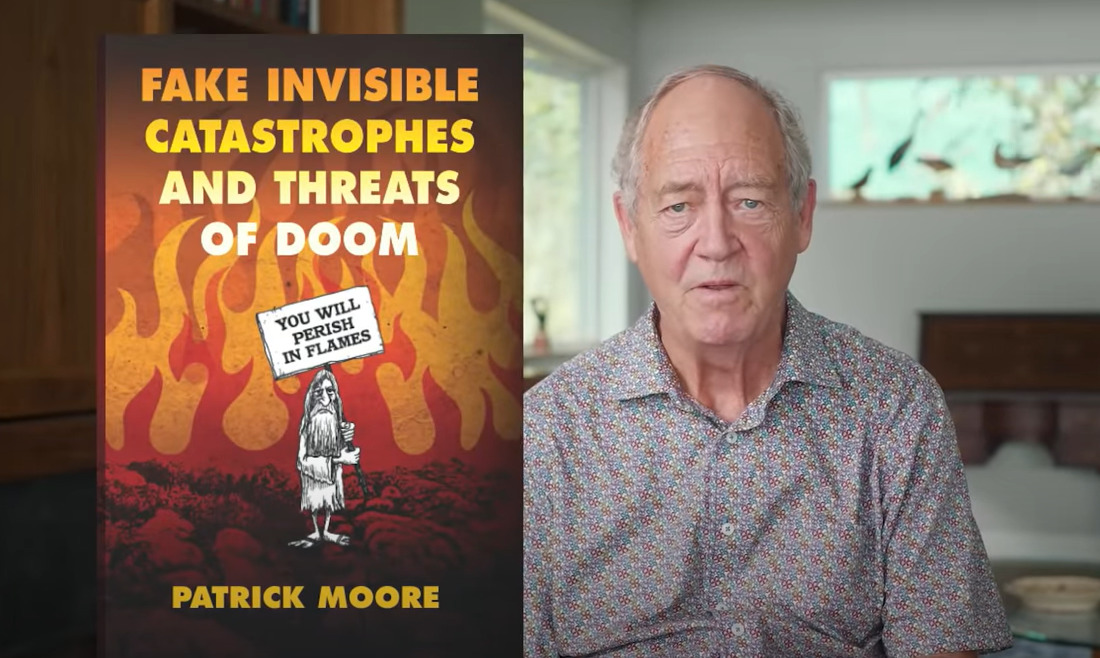
Just a few pages into "1984" is a description of the 2-minute hate, transcribed in the writer's comments below. Despite his status as an accidental, amateur enemy of the state, "1984" protagonist, Winston Smith, habitually succumbs to the mindless, group rage quite quickly, as the 2-minute hate is not very long. His conditioning in this regard doesn't demonstrate any difference between that of proles (proletarians). Smith is just as susceptible.
I got a glimpse of something I wasn't supposed to see, early in Covid, when my grandchildren were stuck at home with portable devices, Chromebooks, to give them connectivity with the schools. My granddaughter was participating in reading current events, when the teacher, who couldn't see that I was listening off-camera, prompted the students, "now, how does that relate to racism?"
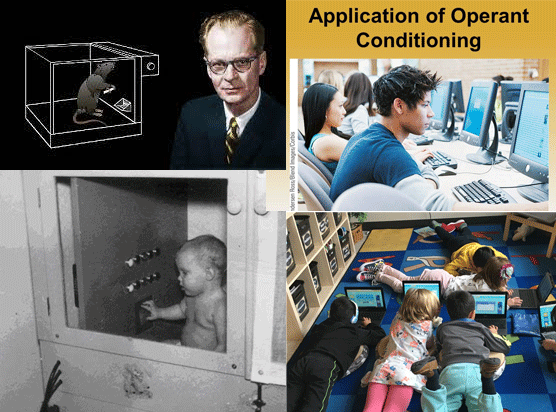
Skinner’s infant daughter Deborah, who wasn’t allowed to be touched, was the first experimental subject decades before computers confined your child’s mind in a portable Skinner box.
In various conflicts with the grandchildren over issues of keeping off porn sites, they developed the habit of routinely shielding their Chromebooks from view. After my granddaughter stole my phone several times, I had it out with them, terming their secretiveness "crypto". They forbade me to use that term.
They revealed the attitude that electronic participation with the in-group serves a deep-seated craving for group inclusion. This principle is well-understood and described in numerous accounts. It has long been established that the young people themselves are enforcers of ideological conformity.
My granddaughter asked me to take they/them to an after-school rally, outside of the heavily infested Granite Bay California school district, where a school counselor has full access to vulnerable young people and gets them out to off-campus events and venues. I didn't know what the event was about. We drove out after dark to an industrial-park church building. It was a drag queen rally, with various semi-professional acts being carried out on a stage with high-tech lighting and pre-recorded music. My granddaughter was extremely thrilled and excited by the event. As I sat in the back subtly praying the rosary without showing the beads in my hands, I was nervously eyed by various crowd members, but I wasn't overt acting, and they didn't expel me.
The schools have inculcated these attitudes, but once they take hold, the young people themselves are the ideological enforcers of uniformity.
It is towards this issue that I am working, trying to afford my granddaughter with the means of discovering what a dead-end they are heading into.
It was nearly eleven hundred, and in the Records Department, where Winston worked, they were dragging the chairs out of the cubicles and grouping them in the centre of the hall opposite the big telescreen, in preparation for the Two Minutes Hate. Winston was just taking his place in one of the middle rows when two people whom he knew by sight, but had never spoken to, came unexpectedly into the room. One of them was a girl whom he often passed in the corridors. He did not know her name, but he knew that she worked in the Fiction Department. Presumably--since he had sometimes seen her with oily hands and carrying a spanner--she had some mechanical job on one of the novel-writing machines. She was a bold-looking girl, of about twenty-seven, with thick hair, a freckled face, and swift, athletic movements. A narrow scarlet sash, emblem of the Junior Anti-Sex League, was wound several times round the waist of her overalls, just tightly enough to bring out the shapeliness of her hips. Winston had disliked her from the very first moment of seeing her. He knew the reason. It was because of the atmosphere of hockey-fields and cold baths and community hikes and general clean-mindedness which she managed to carry about with her. He disliked nearly all women, and especially the young and pretty ones. It was always the women, and above all the young ones, who were the most bigoted adherents of the Party, the swallowers of slogans, the amateur spies and nosers-out of unorthodoxy. But this particular girl gave him the impression of being more dangerous than most. Once when they passed in the corridor she gave him a quick sidelong glance which seemed to pierce right into him and for a moment had filled him with black terror. The idea had even crossed his mind that she might be an agent of the Thought Police. That, it was true, was very unlikely. Still, he continued to feel a peculiar uneasiness, which had fear mixed up in it as well as hostility, whenever she was anywhere near him.
The other person was a man named O'Brien, a member of the Inner Party and holder of some post so important and remote that Winston had only a dim idea of its nature. A momentary hush passed over the group of people round the chairs as they saw the black overalls of an Inner Party member approaching. O'Brien was a large, burly man with a thick neck and a coarse, humorous, brutal face. In spite of his formidable appearance he had a certain charm of manner. He had a trick of resettling his spectacles on his nose which was curiously disarming--in some indefinable way, curiously civilized. It was a gesture which, if anyone had still thought in such terms, might have recalled an eighteenth-century nobleman offering his snuffbox. Winston had seen O'Brien perhaps a dozen times in almost as many years. He felt deeply drawn to him, and not solely because he was intrigued by the contrast between O'Brien's urbane manner and his prize-fighter's physique. Much more it was because of a secretly held belief--or perhaps not even a belief, merely a hope--that O'Brien's political orthodoxy was not perfect. Something in his face suggested it irresistibly. And again, perhaps it was not even unorthodoxy that was written in his face, but simply intelligence. But at any rate he had the appearance of being a person that you could talk to if somehow you could cheat the telescreen and get him alone. Winston had never made the smallest effort to verify this guess: indeed, there was no way of doing so. At this moment O'Brien glanced at his wrist-watch, saw that it was nearly eleven hundred, and evidently decided to stay in the Records Department until the Two Minutes Hate was over. He took a chair in the same row as Winston, a couple of places away. A small, sandy-haired woman who worked in the next cubicle to Winston was between them. The girl with dark hair was sitting immediately behind.
The next moment a hideous, grinding screech, as of some monstrous machine running without oil, burst from the big telescreen at the end of the room. It was a noise that set one's teeth on edge and bristled the hair at the back of one's neck. The Hate had started.
As usual, the face of Emmanuel Goldstein, the Enemy of the People, had flashed on to the screen. There were hisses here and there among the audience. The little sandy-haired woman gave a squeak of mingled fear and disgust. Goldstein was the renegade and backslider who once, long ago (how long ago, nobody quite remembered), had been one of the leading figures of the Party, almost on a level with Big Brother himself, and then had engaged in counter-revolutionary activities, had been condemned to death, and had mysteriously escaped and disappeared. The programmes of the Two Minutes Hate varied from day to day, but there was none in which Goldstein was not the principal figure. He was the primal traitor, the earliest defiler of the Party's purity. All subsequent crimes against the Party, all treacheries, acts of sabotage, heresies, deviations, sprang directly out of his teaching. Somewhere or other he was still alive and hatching his conspiracies: perhaps somewhere beyond the sea, under the protection of his foreign paymasters, perhaps even--so it was occasionally rumoured--in some hiding-place in Oceania itself.
Winston's diaphragm was constricted. He could never see the face of Goldstein without a painful mixture of emotions. It was a lean Jewish face, with a great fuzzy aureole of white hair and a small goatee beard--a clever face, and yet somehow inherently despicable, with a kind of senile silliness in the long thin nose, near the end of which a pair of spectacles was perched. It resembled the face of a sheep, and the voice, too, had a sheep-like quality. Goldstein was delivering his usual venomous attack upon the doctrines of the Party--an attack so exaggerated and perverse that a child should have been able to see through it, and yet just plausible enough to fill one with an alarmed feeling that other people, less level-headed than oneself, might be taken in by it. He was abusing Big Brother, he was denouncing the dictatorship of the Party, he was demanding the immediate conclusion of peace with Eurasia, he was advocating freedom of speech, freedom of the Press, freedom of assembly, freedom of thought, he was crying hysterically that the revolution had been betrayed--and all this in rapid polysyllabic speech which was a sort of parody of the habitual style of the orators of the Party, and even contained Newspeak words: more Newspeak words, indeed, than any Party member would normally use in real life. And all the while, lest one should be in any doubt as to the reality which Goldstein's specious claptrap covered, behind his head on the telescreen there marched the endless columns of the Eurasian army--row after row of solid-looking men with expressionless Asiatic faces, who swam up to the surface of the screen and vanished, to be replaced by others exactly similar. The dull rhythmic tramp of the soldiers' boots formed the background to Goldstein's bleating voice.
Before the Hate had proceeded for thirty seconds, uncontrollable exclamations of rage were breaking out from half the people in the room. The self-satisfied sheep-like face on the screen, and the terrifying power of the Eurasian army behind it, were too much to be borne: besides, the sight or even the thought of Goldstein produced fear and anger automatically. He was an object of hatred more constant than either Eurasia or Eastasia, since when Oceania was at war with one of these Powers it was generally at peace with the other. But what was strange was that although Goldstein was hated and despised by everybody, although every day and a thousand times a day, on platforms, on the telescreen, in newspapers, in books, his theories were refuted, smashed, ridiculed, held up to the general gaze for the pitiful rubbish that they were--in spite of all this, his influence never seemed to grow less. Always there were fresh dupes waiting to be seduced by him. A day never passed when spies and saboteurs acting under his directions were not unmasked by the Thought Police. He was the commander of a vast shadowy army, an underground network of conspirators dedicated to the overthrow of the State. The Brotherhood, its name was supposed to be. There were also whispered stories of a terrible book, a compendium of all the heresies, of which Goldstein was the author and which circulated clandestinely here and there. It was a book without a title. People referred to it, if at all, simply as THE BOOK. But one knew of such things only through vague rumours. Neither the Brotherhood nor THE BOOK was a subject that any ordinary Party member would mention if there was a way of avoiding it.
In its second minute the Hate rose to a frenzy. People were leaping up and down in their places and shouting at the tops of their voices in an effort to drown the maddening bleating voice that came from the screen. The little sandy-haired woman had turned bright pink, and her mouth was opening and shutting like that of a landed fish. Even O'Brien's heavy face was flushed. He was sitting very straight in his chair, his powerful chest swelling and quivering as though he were standing up to the assault of a wave. The dark-haired girl behind Winston had begun crying out 'Swine! Swine! Swine!' and suddenly she picked up a heavy Newspeak dictionary and flung it at the screen. It struck Goldstein's nose and bounced off; the voice continued inexorably. In a lucid moment Winston found that he was shouting with the others and kicking his heel violently against the rung of his chair. The horrible thing about the Two Minutes Hate was not that one was obliged to act a part, but, on the contrary, that it was impossible to avoid joining in. Within thirty seconds any pretence was always unnecessary. A hideous ecstasy of fear and vindictiveness, a desire to kill, to torture, to smash faces in with a sledge-hammer, seemed to flow through the whole group of people like an electric current, turning one even against one's will into a grimacing, screaming lunatic. And yet the rage that one felt was an abstract, undirected emotion which could be switched from one object to another like the flame of a blowlamp. Thus, at one moment Winston's hatred was not turned against Goldstein at all, but, on the contrary, against Big Brother, the Party, and the Thought Police; and at such moments his heart went out to the lonely, derided heretic on the screen, sole guardian of truth and sanity in a world of lies. And yet the very next instant he was at one with the people about him, and all that was said of Goldstein seemed to him to be true. At those moments his secret loathing of Big Brother changed into adoration, and Big Brother seemed to tower up, an invincible, fearless protector, standing like a rock against the hordes of Asia, and Goldstein, in spite of his isolation, his helplessness, and the doubt that hung about his very existence, seemed like some sinister enchanter, capable by the mere power of his voice of wrecking the structure of civilization.
I will review this.
Not familiar with several sources pictured.
>> I had it out with them, terming their secretiveness “crypto”. They forbade me to use that term. <<
This is another odd thing: would we ever have even thought of telling an adult what they could and could not do or say? And yet now, they act like they have all the power.
Sometimes they seem somehow feral....
Thanks for posting.
Thanks for posting. Beyond Freedom and Dignity - B.F. Skinner
Disclaimer: Opinions posted on Free Republic are those of the individual posters and do not necessarily represent the opinion of Free Republic or its management. All materials posted herein are protected by copyright law and the exemption for fair use of copyrighted works.